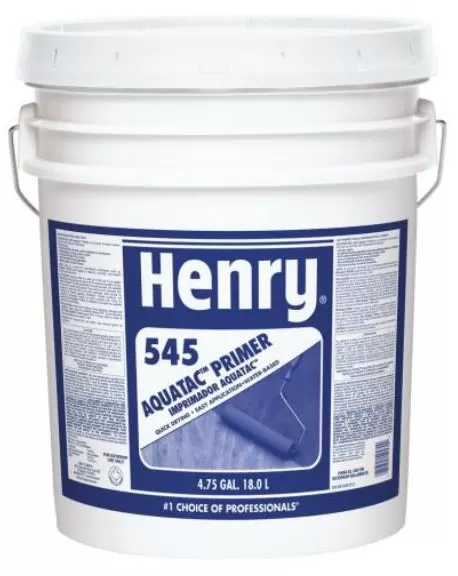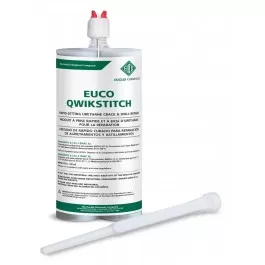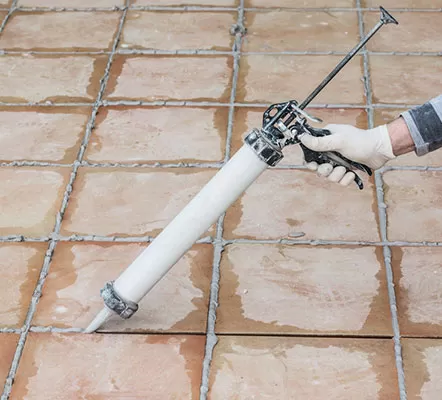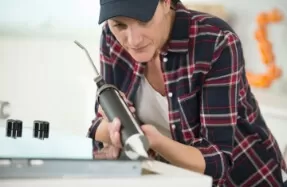Blog
Understanding The Basics Of Tripolymer Caulk
Tripolymer caulk is an increasingly popular choice of sealant for many home improvement projects due to its superior durability and versatility. This blog will discuss the basics of tripoly caulk, including its advantages, uses, and installation tips. By understanding the basics of tripoly caulk, you can be sure to select the right product for your project and achieve lasting results.
What Is Tripoly Caulk?
Tripoly caulk is a type of acrylic, silicone, and polyurethane sealant. This blend of materials provides superior durability, flexibility, and adhesion, making it a popular choice for home improvement projects. It is often used to seal cracks and gaps in walls, windows, and doors and can provide a waterproof seal. Tripoly caulk is available in various colors and textures, blending with multiple surfaces.
Advantages of Tripoly Caulk
It is a silicone-based sealant that provides an airtight seal, making it ideal for windows, doors, and other areas where air infiltration can cause problems. Tripoly caulk is also used to seal cracks and gaps around the home, and it is an excellent choice for waterproofing. Here are the advantages of using tripoly caulk in your home improvement projects:
- Easy to Apply: Tripoly caulk is easy to apply and can be used in both wet and dry conditions. It has a long-lasting bond, even on wet surfaces, and it’s easy to spread evenly. It’s also non-toxic and non-flammable, making it safe to use around children and pets.
- Versatile – One of the biggest advantages of a tripolymer is its ability to bond to multiple surfaces, from asphalt driveways to concrete garage gaps.
- Durable: Tripoly caulk is very durable and can withstand extreme temperatures and conditions. It can also withstand harsh chemicals, so it’s an ideal choice for projects that require a seal to be waterproof and resistant to the elements.
- Flexible: Tripoly caulk can expand and contract with changing temperatures. This makes it ideal for areas that may experience fluctuating temperatures, as it won’t crack or break over time.
- Long-lasting: Tripoly caulk has a very long lifespan, lasting up to 25 years. This makes it an excellent choice for projects that require a long-term seal.
- Low-cost: Tripoly caulk is relatively inexpensive compared to other types of caulks. This makes it a great choice for budget-minded homeowners who want to save money on their home improvement projects.
- Low-maintenance: Tripoly caulk doesn’t require much maintenance, so it’s a great choice for homeowners who don’t want to worry about constantly checking and recaulking their windows and doors.
- Eco-friendly: Tripoly caulk is made from natural ingredients, making it eco-friendly for home improvement projects. It’s also non-toxic and non-flammable so it won’t harm the environment.
Uses of Tripoly Caulk
As mentioned, this caulk is versatile. Because it is made from a combination of chemicals, it can seal various materials, including wood, metal, glass, and masonry. It is also highly resistant to UV light, water, and heat, making it an ideal choice for outdoor projects. Here are some of the uses of tripoly caulk that you should consider for your next project:
- Windows and Doors: Tripoly caulk is ideal for sealing windows and doors. It is highly resistant to water, so it won’t be affected by water from rain or snow. It can also reduce air infiltration, making the home more energy efficient.
- Roofs: This will help keep water from entering the home and causing damage and provide a better overall seal. Because it is highly resistant to UV light, it won’t fade or become brittle.
- Gutters and Downspouts: Tripoly caulk can seal the seams of gutters and downspouts. This will prevent water from leaking into the home and causing damage.
- Pipes: Water leaks will less likely to be a problem if you seal the joints of pipes, such as sewer and water pipes with tripoly caulk.
- Bathtubs and Sinks: In addition to water leaks, clogging due to debris is also preventable when you apply tripoly caulk to the joints of bathtubs and sinks.
Concrete and Masonry Joints: Tripoly caulk can be used to seal the joints of concrete and masonry. These include patios, driveways, brick, and stone walls. It is effective in keeping the concrete and masonry from becoming cracked or chipped over time.




